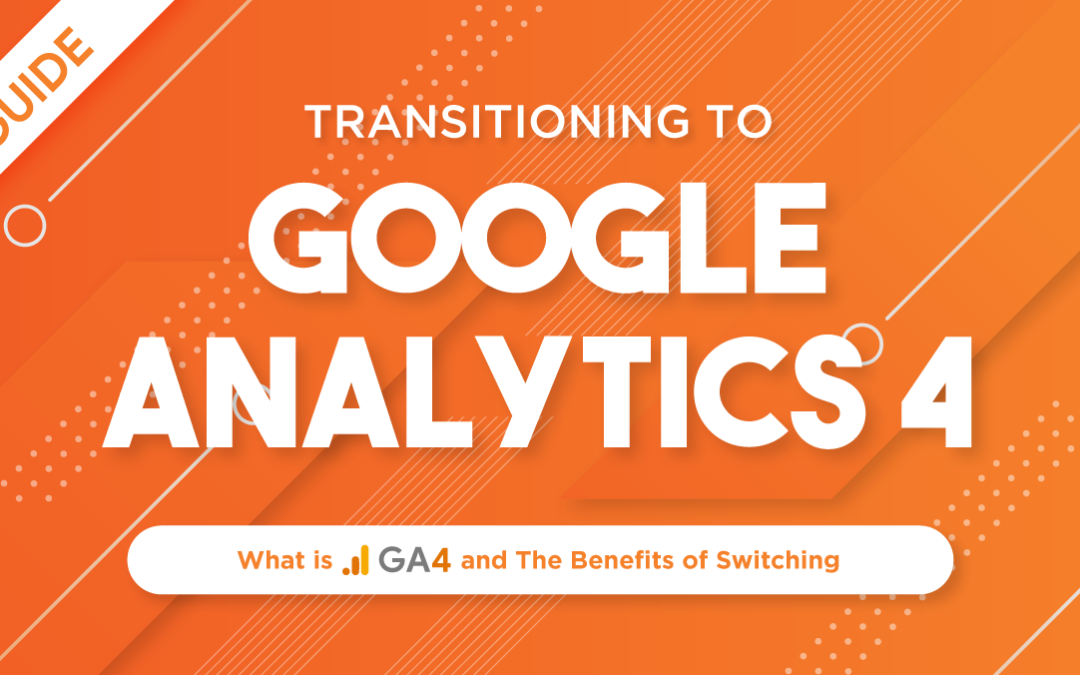
Guide: Transitioning to Google Analytics 4
No matter what your business looks like, digital marketing is key — and data analytics is a huge part of that. Without it, you’re essentially flying blind. Tracking customer data allows you to better understand their journey so you can give them what they’re looking for. It goes beyond just capturing new business. You’re also serving your existing customer base with an eye on retention.
Reliable data is your foundation. Google Analytics has long been the go-to source for customer data, but the platform recently got a facelift. GA4 is the latest iteration of Google Analytics. The new changes make it easier for business owners to be more intentional with their marketing efforts. You may be intimidated to make the switch, but the data-driven insights are tough to beat. Here’s how it works.
What is Google Analytics 4?
Google’s Universal Analytics, which is what many business owners are used to, is largely focused on page views. That was once the mega-metric that marketing teams focused on, but times have changed. It’s become less about views and more about how web visitors are engaging with your website. These days, traffic alone just doesn’t tell us enough about the customer journey.
The new GA4 provides a more comprehensive view so you can see exactly how users are interacting with your site. The same goes for your app, if you have one. That’s a big step up from Universal Analytics. Mobile commerce has seen tremendous growth in recent years. By 2025, over 10% of retail transactions are expected to occur through mobile, according to eMarketer.
GA4 provides more thorough insights and reports based on visitor interactions. That includes when (and how long) they interacted with different parts of your app or website. It also uses AI technology to make predictions. This allows business owners to create hyper-targeted marketing campaigns based on real data.
Benefits of Switching to GA4
Let’s take a more in-depth look at the new Google Analytics. Below is a snapshot of some of its unique capabilities:
- Provides powerful metrics that meet today’s demands:
Universal Analytics focuses largely on independent sessions and desktop web usage — but that doesn’t reflect how most people use the web today. GA4 uses event-based data that provides a clearer view of how users are interacting with your website and app. You can see engaged sessions, along with engagement rates and times. You can also generate deep-dive reports that go beyond session reporting.
- Works hand in hand with Google Ads:
GA4 integrates smoothly with Google Ads. That means you can use insights from Google Analytics to inform and optimize your ad campaigns. Consider it one more resource for your SEO and SEM goals.
- Unlocks predictive insights:
Thanks to machine learning, GA4 offers up predictive insights on user behavior, conversions, potential new audiences and more. That includes suggestions for leveling up your marketing efforts.
With that said, GA4 may still feel like a big change: The interface, dashboard and reports operate differently than Universal Analytics. Getting the hang of it might take some time, but the in-depth insights are worth it.
How to Install GA4
Google’s Setup Assistant makes it pretty easy. Here are step-by-step instructions for installing Google Analytics 4:
- Login to Google Analytics and click “Admin”
- Double check that you’re in the correct account and property
- Click “Setup Assistant”
- Follow prompts to create a new GA4 property
What We Can Expect Looking Forward
Universal Analytics has an expiration date. As of July 1, 2023, it will stop processing data. Making the switch to GA4 before then will give you time to learn the platform and start reaping the benefits. It can be a lot to digest, but BrandMinded is here to make the journey a little easier. Connect with us today for more data-driven marketing solutions for your business.
